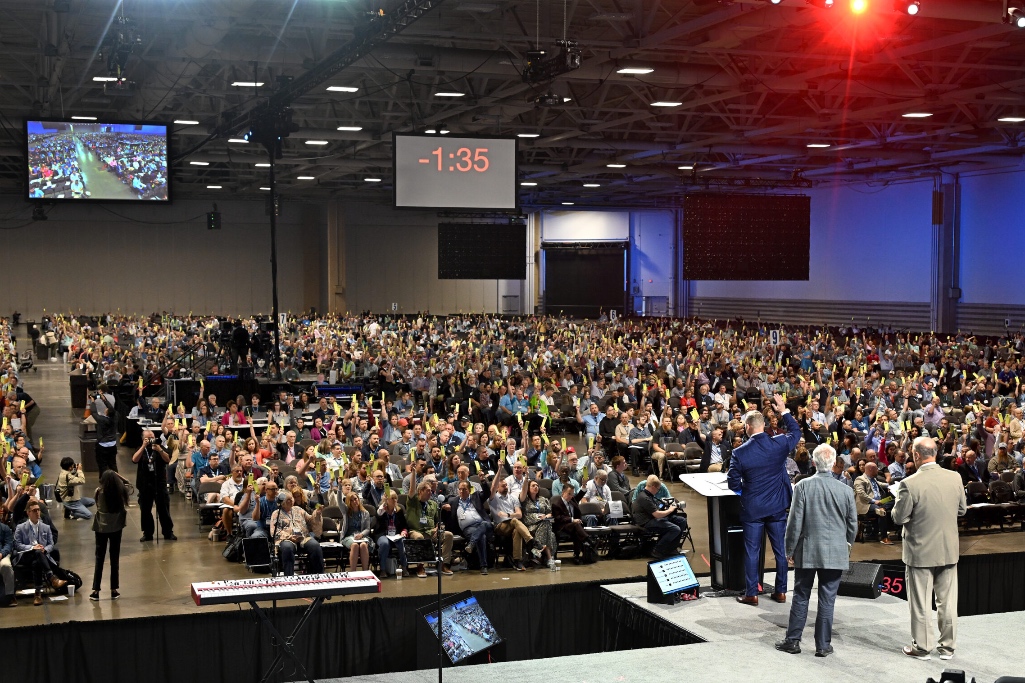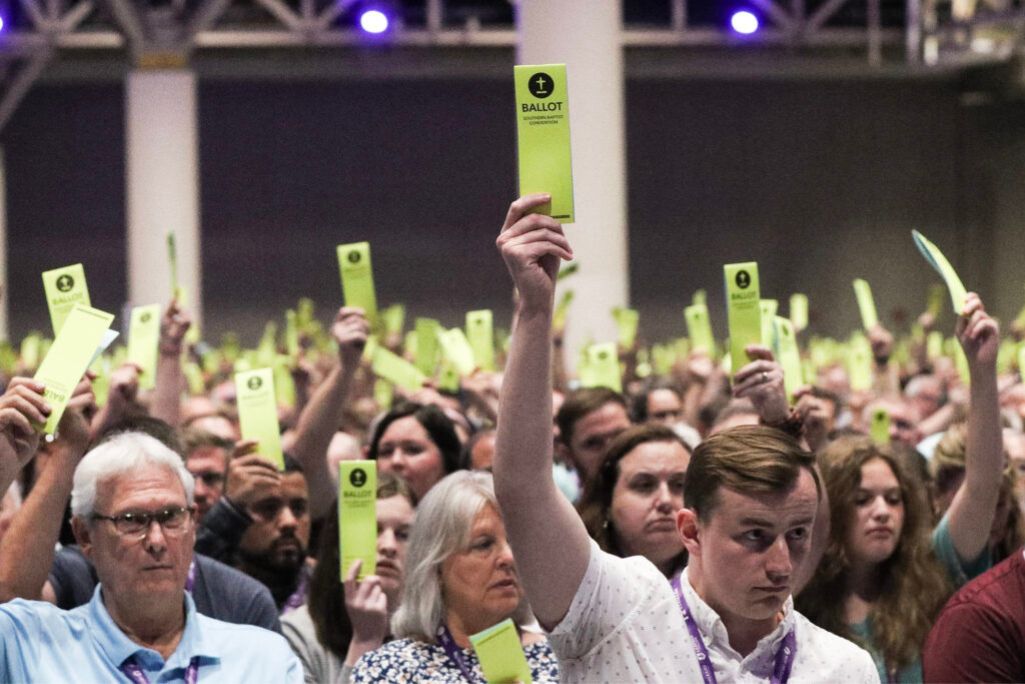
Cooperation is hard. It has been difficult from the beginning of the church. As in Acts 6, when the apostles had to resolve a conflict between the Hellenists and the Hebrews. Or as in Acts 15, when Paul and Barnabas had “a sharp disagreement” which led them to separate from one another. Any cursory glance at church history teaches us that Christians disagreeing with each other is quite regular. Cooperation requires a lot of work and a lot of conversation. Anyone seeking cooperation must continually ask: Is it worth it?
Southern Baptists have always believed that the task before us — to teach, train and serve the next generation of pastors so that we can reach the world with the good news of Jesus Christ — makes our cooperation together worth the effort. Like most years, the 2025 Southern Baptist Convention (SBC) annual meeting proved that point — our discussions centered on our means of cooperation. The good news is that I do not believe we are disagreeing over theology. Our pressure point is how we can work together.
The overwhelming majority of Southern Baptists are complementarian, and those who are not must understand they are outside the bounds of our confession. We see this in our votes in recent years on churches like Saddleback and First Baptist Church of Alexandria, Virginia. However, the point continually raised is whether or not our complementarian convictions, which are clear in our confession, should be codified in our governing documents. This comes down to our philosophy of cooperation and how we adjudicate our confession. I convictionally voted for what is known as the “Law Amendment” three times, and I remain convinced of its merits. At the same time, considering it has not reached the necessary threshold to pass, this will mean our broader work together as Southern Baptists, for now, will have to continue without unanimity on every point.
I know that every Southern Baptist wants their institutions to operate faithfully and be above reproach in their stewardship of the monies that they receive from the Cooperative Program. I am thankful for those who continually remind us of this. Those in entity leadership and our trustees must do the hard work of accountability and they deserve the benefit of trust. That is what we elect them for. The messengers at SBC25 voted clearly to affirm our trustee system, and the role trustees play within our system of cooperation is vital. We cannot afford the failure of one trustee board because it would undermine the work and trust of them all. At the same time, we can and should look for ways to be even more transparent in our governance.
On the heels of SBC25, one trustee board, in particular, has some serious issues to discuss. For the second consecutive year, the Ethics and Religious Liberty Commission (ERLC) survived a vote to abolish it. With almost 43% of messengers voting to abolish this entity, ERLC trustees must take a hard look at the current leadership and direction of the entity. This is undoubtedly challenging work, but the work plays a vital role in our cooperative effort. While each entity has its own separate trustee board, they all still work within our SBC ecosystem. When one of our entities loses the trust of the people in our churches, it affects our work together.
However, with all these points of contention in our cooperation, one positive example of shared cooperation at this year’s annual meeting was the ease at which the messengers voted for a slate of resolutions that affirmed Southern Baptist convictions on some of the most controversial issues in our culture. The fact that Southern Baptists can be so unified around topics our culture is divided on is a testament to the doctrinal and moral consensus undergirding our cooperative witness in the broader culture.
Once again, SBC25 in Dallas underscored the significant value of our cooperation. The leadership of our president, Clint Pressley, was faithful and godly. I am thankful for leaders like him in our convention. The sending of 58 missionaries encourages me, and the excellent report of our church-planting efforts motivates me to do more, work harder, give more and reach those who have never heard the good news of Jesus Christ. Our six seminaries — led by conservative, faithful men — make me want to strive together to train up our people in love and good deeds. I am not discouraged; I am encouraged.
The SBC is a family affair for me. The relationships and friendships I have are a treasure — friends for years and on both sides of some of these contentious issues. I love and appreciate them all. And my kids, who insist on coming every year and love to be in the room, I think about them often while sitting on the convention floor. For the sake of those who need Christ and for the generations of Southern Baptists after us, the hard work of cooperation is worth it.
(EDITOR’S NOTE — Josh Powell is lead pastor of Taylors First Baptist Church in Taylors, South Carolina.)


